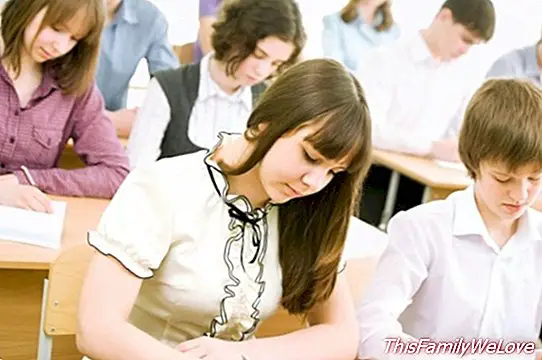Six keys to understand the new revalidation in Primary, ESO and Bachillerato

One of the most striking aspects of the latest education reform is the introduction of final tests in Primary, ESO and Baccalaureate. Some exams, common throughout the country, will be necessary to obtain the title of each level. In the case of the latter, it replaces the Selectividad, the test that all high school students had to take if they wanted to enter the University.
These tests, which are very reminiscent of old revalidations, will be released in 2016 (for Primary) and 2017 (in the case of ESO and Bachillerato) and will consist of anxamen test type of 350 questions maximum, as has been known this week in the draft submitted by the Government.
The questions will be formulated in fOrmato of four alternatives and answers "semi-built". There will only be an open response format to evaluate the expression of the students. Here we leave you six questions, and their corresponding answer, to understand what these new final tests will consist of.
What will the final grades be like after the exams?
These final exams will mark the students. In Primary, the evaluation of their competences will be expressed as "insufficient", "sufficient", "good", "outstanding" and "outstanding", while in the ESO and Bachillerato the score will be numerical from zero to ten (five being the approved).
How will the average of ESO and Bachillerato be calculated with the LOMCE?
Within the framework of the Organic Law for the Improvement of Educational Quality (Lomce) it is established that the grade at the end of the ESO will be the average between the marks obtained in the subjects studied (which will account for 70 percent) and the evaluation through the final exam (which will count 30 percent). In the case of Baccalaureate, the weighting is different: 60 percent of the courses taken and 40 percent of the final exam, as in the current Selectivity.
Can the final test be done with suspended subjects?
In order to be able to take the final exam, ESO students may only have two failed subjects, provided that they are neither Spanish Language and Literature nor Mathematics at the same time. For their part, the Bachillerato must have everything approved.
When is the system launched and Selectivity ends?
As stated in the draft of this norm, the way to put the final tests into practice is the following: the first final evaluation of Primary will be done in 2016, that of the ESO in 2017, although it will not have academic effects and in that course there will be a single call; and the Baccalaureate will also arrive in 2017 with two calls, although in your case it will be taken into account only to access the university but not to obtain the degree, that is, that year will be the first without Selectivity.
What happens if the final test is suspended?
The students of both ESO and Bachillerato will have several opportunities to pass the final exam test and they can also upload a grade whenever they request it, staying at the end with the highest grade. They will be obliged to present themselves again only to the exams of the subjects they have suspended, and they will be the ones who decide if they want to repeat another exam.
What subjects will evaluate the final exams?
The exam, both ESO and Bachillerato, Is divided into three parts. First, four general subjects of the block of core subjects (maximum of 200 questions); in second, two subjects chosen from the block of core subjects (maximum of 100 questions) and, in third, with a maximum of 50 questions, a subject chosen by the student from the rest of the subjects studied, except Physical Education, Religion or Ethical Values. The structure of the exam is as follows:
- Four compulsory subjects (less Biology and Geology and Physics and Chemistry)
- Two options within the core subjects
- An optional third (in the case of Baccalaureate, of the block of the specific ones) taken in any course, except Physical Education, Religion or Ethical Values.
Angela R. Bonachera




